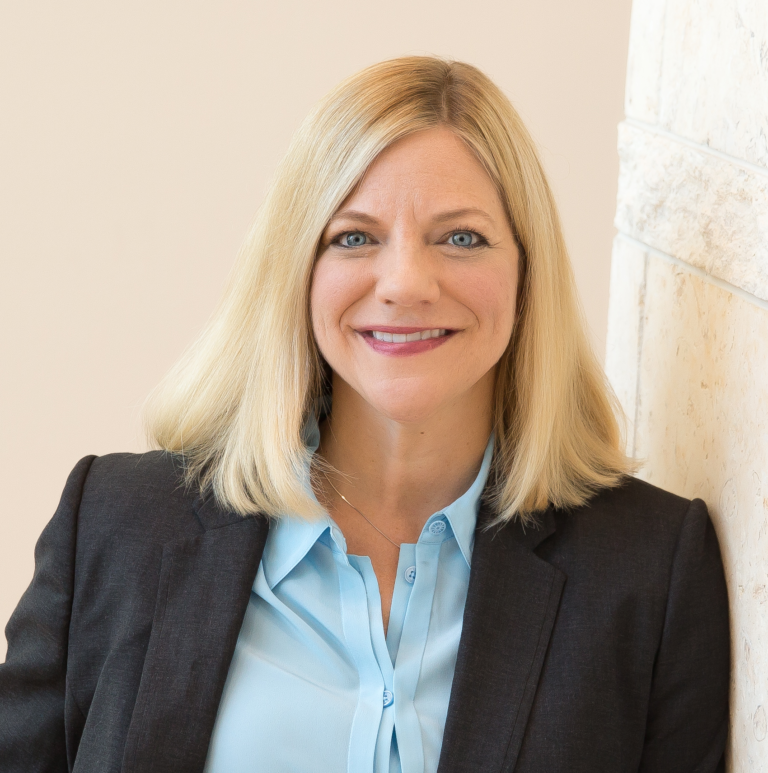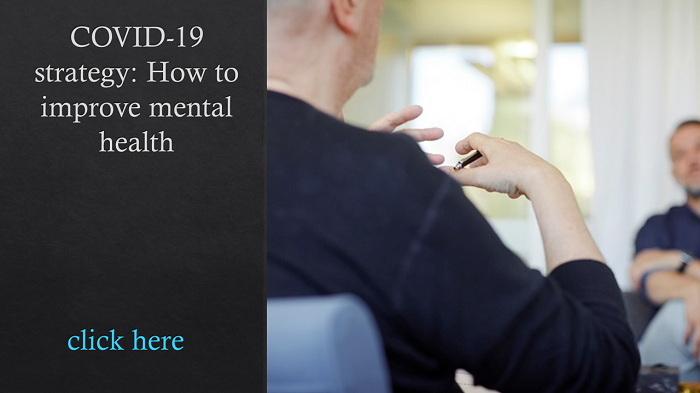While the coronavirus pandemic has sidelined companies across industries, hospitality has been particularly hard-hit, with business and leisure travel halted amid shutdowns.
For G6 Hospitality, which operates more than 1,400 Motel 6 and Studio 6 economy lodging locations across North America, that meant furloughs—although Sherry Vidal-Brown, chief HR and communication officer at G6, says the company was committed to supporting those workers: providing a stipend, full benefits and temporary job placements at other companies.
When business started picking up again and furloughed workers were recalled, 95% returned to G6. That’s a testament to the supportive culture at the organization, she says.
“In a time of crisis, you can pull apart or pull together, and so much of what happened for us was that it pulled us together,” she says.
Vidal-Brown—who joined G6 in 2009 and has also held HR leadership positions at Bain and Co., American Airlines and FedEx—recently shared how else G6 has weathered the challenges of the last year with HRE.
HRE: What initially sparked your interest in HR?

Sherry Vidal-Brown
Vidal-Brown: I was focusing my education on psychology and business and, with the pure psychology route, I felt like when you’re helping people, so much is individual counseling or therapy and I wanted to help people where they spent the most of their time—the workplace. I felt like there was this natural synergy between HR and business to help people achieve and excel at their potential.
So, that brought me into HR and then more specifically into learning and development; I’ve been really focused on leadership, talent, growth, succession planning and executive coaching. That’s where my passion has stayed and still is today: helping individuals achieve their potential but also helping businesses achieve their potential as well.
HRE: What has been the biggest HR test for you throughout this last year?
Vidal-Brown: Balancing trying to keep true to your culture with all the different dynamics at play this past year. First and foremost, you had to put your team members and their safety and health at the forefront. And then there were financial components. The industry was having a very challenging time and you had to make decisions related to people, so we had cutbacks that we had to navigate through.
Lastly, there have been a lot of regulatory changes going on that might conflict with the very right things we’re trying to do. These things were constantly all changing so being able to communicate clearly so that team members had that context of what we’re trying to do and how we’re trying to take care of people, that’s been my focus.
HRE: What kind of communication process did you institute at the start in order to disseminate information and updates to such a wide range of frontline workers?
Vidal-Brown: We had to pivot pretty quickly. We had a Clean@6 program we implemented to keep team members and our guests safe and, with these new protocols, we had to quickly communicate, including through a variety of webinars and Zoom calls that walked everyone through it. We did Heroes Wear Masks to highlight the frontline nature of our employees and what they were doing to support [customers], whether they were truck drivers driving across the country or healthcare workers going to support people in other areas. We have a very diverse workforce and they speak multiple languages so we made sure those communications were put out in different languages—which we’ve been doing elsewhere for many years.
So many times, when you roll out a new communication vehicle you feel like it has to be perfect, but in the middle of a pandemic, we had to do things without having everything just perfect. We tried it out and we did it. And what we found is that 80% of our employees said they completely understood our priorities, and that was a huge increase from where we had been a few months earlier. It really showed the efforts of our frequent communication through different vehicles and our work to create a sense of camaraderie and alignment.
HRE: As the travel and hospitality industry slowed to a halt, how did you seek to keep frontline employees engaged and keep their morale up?
 Vidal-Brown: Our goal was to get team members back to work as quickly as possible—one, to serve guests and, two, we wanted them to be able to have that paycheck. So, we first and foremost thought about how we’re taking care of and respecting every individual in a very difficult time. When we had to make those difficult decisions, we provided full benefits to folks on furlough and we also provided a lump-sum stipend to assist these team members.
Vidal-Brown: Our goal was to get team members back to work as quickly as possible—one, to serve guests and, two, we wanted them to be able to have that paycheck. So, we first and foremost thought about how we’re taking care of and respecting every individual in a very difficult time. When we had to make those difficult decisions, we provided full benefits to folks on furlough and we also provided a lump-sum stipend to assist these team members.
With our property team members, we made sure to keep in touch with them on an ongoing basis, checking in about how they were doing, letting them know we’re invested in them and we want them to come back. We also provided relationships: Grocery stores were needing a lot of people stocking shelves and so we had relationships with other companies to help [furloughed Motel 6 employees] find temporary employment during that time. But our people still came back because they knew we cared and put the priority on them.
HRE: How has G6 enhanced its commitment to diversity, equity and inclusion in recent months, particularly when it comes to recruiting and hiring?
Vidal-Brown: I would say our focus on diversity, equity and inclusion has taken on multiple facets. We’ve been thoughtful in working with our community partners to work to help facilitate reform in this area. Our GC is a co-founder of “The Initiative,” which partners with law enforcement to help navigate through issues of diversity and equality to create a better partnership between law enforcement and communities. Our CEO has also taken an active role [in advancing DEI].
We established a group called Code@6, which is a diverse group of team members across the organization who educate and advise G6 and our leaders around issues of DE&I. One of our core focus areas is training; we’ve been assessing how to continue building a culture of inclusion and support our team members in creating that atmosphere of belonging with training to inform and enhance perspectives on diversity, unconscious bias, inclusion and other key topics. We are also taking a dedicated approach to promoting from within and ensuring that we can foster the diverse talent at G6 through ongoing learning and development opportunities and tuition reimbursement. Our purpose is creating a welcoming place for people to stay; we also want to create a welcoming place for people to work.
On the recruiting side, for years we’ve focused on key groups like military veterans; we’ve hired over 1,500 former military members. G6/Motel 6 was the first hospitality brand to sign the Hispanic Promise, a first-of-its-kind diversity and inclusion pledge for Hispanics in America. We are also a signee of both the Texas Competes and America Competes pledges, centered on promoting economic inclusivity and competitive edge in areas of business and tourism for the LGBTQ+ community. We also continue to look for ongoing ways to improve our overall DEI platform to continue to advance our practices in this area.
HRE: I understand you have a Ph.D. in psychology. How has that helped inform your work as an HR leader?
Vidal-Brown: The first thing is I try to start from a place of understanding—where various groups are coming from, what team members’ perspectives are, what senior leadership’s perspectives are, what customers’ perspectives are—and think about how we bring all of their perspectives together to accomplish the same purpose: creating a welcoming place for people to stay and leaving the light on for our guests. And secondly, I focus on building a culture of empathy. The last year has been really difficult, and our guests and team members have had to navigate so much—so much fear and anxiety—so being able to communicate with empathy, being able to connect, being transparent and letting people know you care has been really important. We have continued to focus on our team members’ mental health and wellbeing, particularly through last year, by providing ongoing support through leadership seminars and employee assistance programs.
At G6 Hospitality, we also have a Care@6 Team Member Relief Fund that was created to support team members in financial hardship due to unforeseen circumstances. Sometimes in business, the advantage of having a Ph.D. in psychology is having greater understanding and knowledge of how mental health and wellness have an impact on others and recommending solutions to create a healthy workplace. I think we’ve all had to struggle this past year and hopefully that brought people together and created more of a willingness to talk about items they wouldn’t have normally talked about in the workplace.
HRE: What is the best piece of HR advice you’ve ever received?
Vidal-Brown: “If something doesn’t feel right, pay attention to it.” That probably means you need to do more exploring and trying to understand a situation. Maybe there’s something you didn’t catch at first or a way to understand a situation from a different person’s perspective. You may not always have the answer but take a step back, reflect and don’t feel like you have to act right away.
HRE: Outside of work, what are you passionate about?
Vidal-Brown: I know it’s cliché, but travel. My family made a commitment to go visit a national park every year. I love to explore outside and to hike. We’ve gone on amazing hikes as a family and at the end of the day accomplished it together.